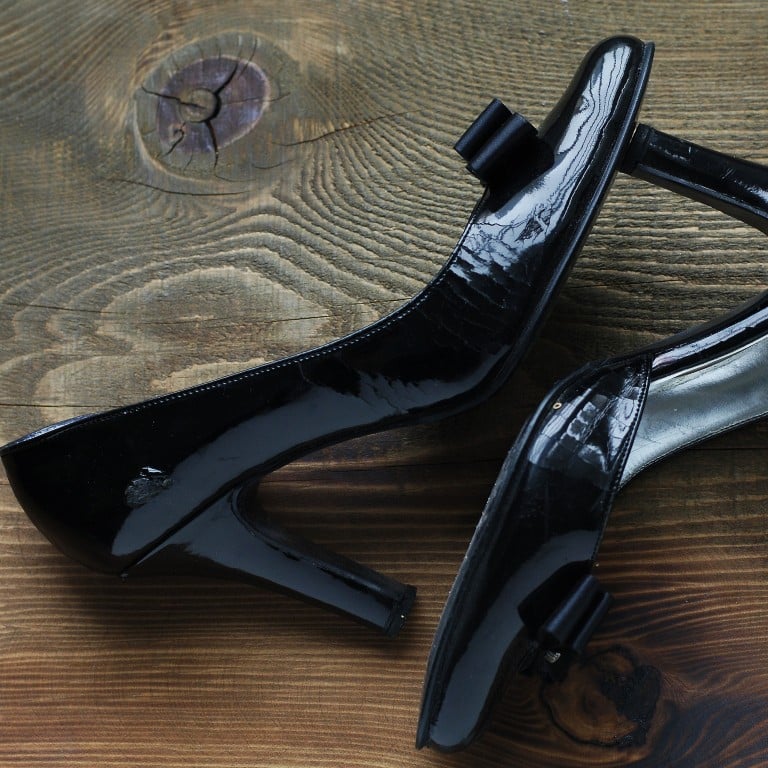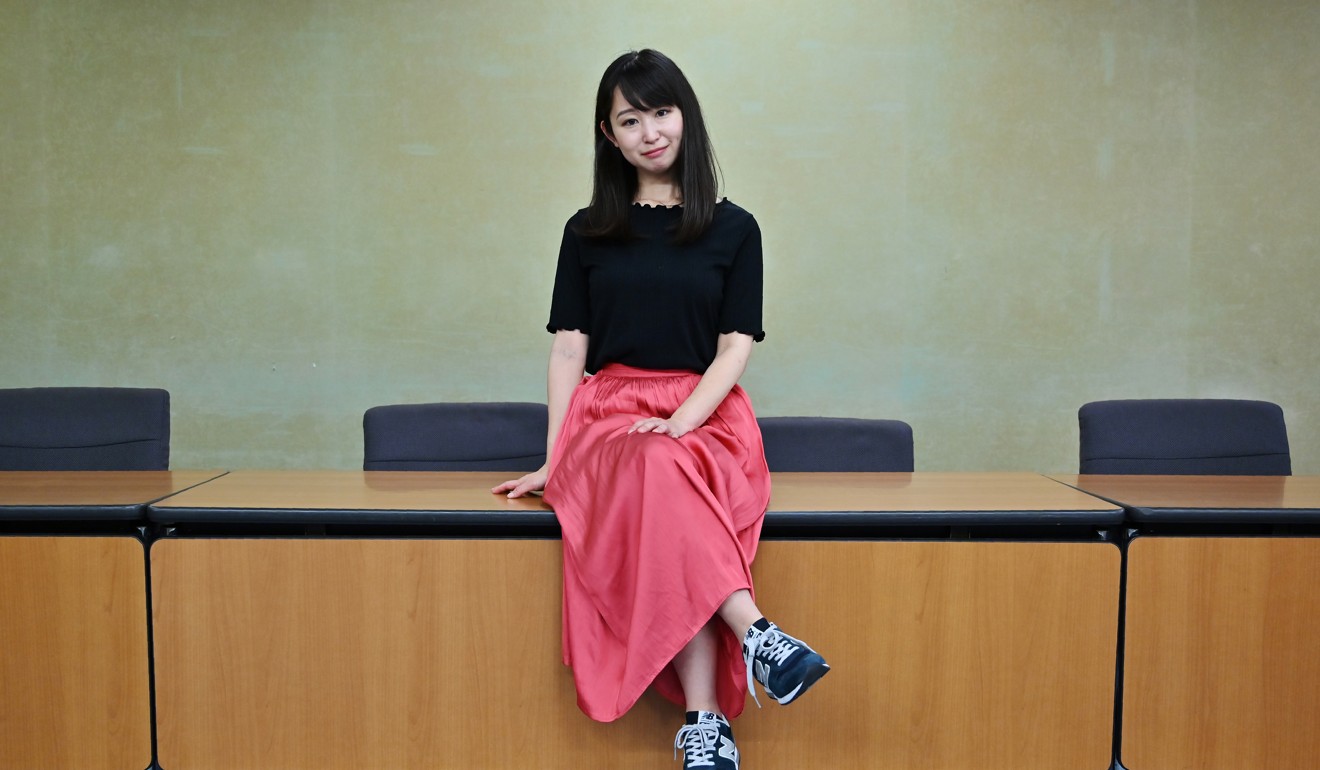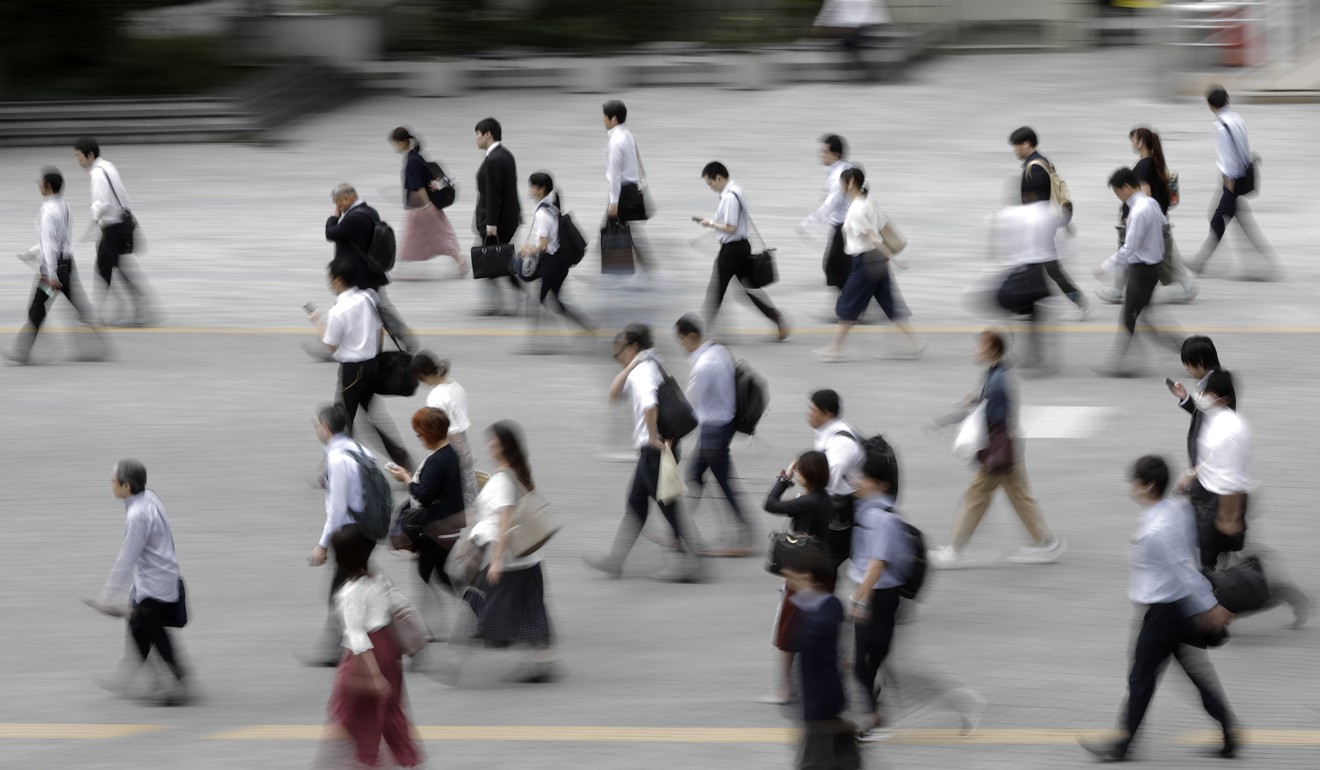
Japan’s #KuToo movement says a high-heels dress code is workplace harassment
- Activists want the government to revise laws on power harassment, or ‘pawa hara’, to include forcing female employees to wear heels
- The KuToo movement has gained momentum, and is one of 10 ‘memorable buzzwords’ for Japan in 2019
On December 3, KuToo founder Yumi Ishikawa filed a letter to the government asking for a revision of the nation’s power harassment laws. Power harassment – popularly referred to as “pawa hara” in Japanese society – entails forms of psychological abuse and abuse of power, as well as bullying in the workplace.
“We are shocked by the lack of address regarding women’s dress code, including the enforcement of mandatory high heels in workplaces,” read the letter addressed to Katsunobu Kato, Japan’s minister of health, labour and welfare.
This is not a campaign asking society to let us wear flats, it’s a campaign to let people know we already have the right to do so
KuToo – a play on the words kutsu (shoes), kutsuu (pain) and the MeToo movement – first emerged as a hashtag in January 2019 after Ishikawa tweeted about being forced to wear painful high heels at her workplace.
“This is not a campaign asking society to let us wear flats, it’s a campaign to let people know we already have the right to do so,” Ishikawa, 32, told the South China Morning Post, adding that women did not need “permission” to wear what they want.
MeToo to KuToo: how Japanese women called time on high heels in the workplace
Ishikawa says the letter asked for the mandatory enforcement of high heels to be included as a form of power harassment alongside the likes of physical abuse, emotional abuse, overwork, and deliberate isolation of an employee.
“Women suffer foot injuries from wearing heels and are forced to quit their jobs, or to forgo job-hunting and give up on certain vocations because of this,” said Ishikawa, whose initial KuToo petition on Change.org has garnered over 31,000 signatures since it was created in February.
She added that parliament had accepted the latest letter but did not issue any comments.

‘NEXT ITERATION OF METOO’
The KuToo movement shows no sign of slowing down – in fact, the term was recently enshrined in Japanese dictionaries after it was chosen as one of the country’s top 10 memorable buzzwords by a leading publisher in early December.
The announcement of KuToo as a buzzword of the year, however, has also brought out critics and detractors who claim the movement is hypocritical and offensive.
“KuToo is what selfishness is,” tweeted @nakusi2. “If people don’t agree with [KuToo] they call it ‘discrimination’ and try to impose what they want. They are the true bigots.”
Posted @Furucto23 on Twitter: “If you can’t wear heels, you should talk to your supervisor and seek grounds for compromise. Yelling at your company and demanding a ban on mandatory high heels without even talking to the, about it – that’s real power harassment.”
#KuToo: Japanese women should wear high heels in workplace, says labour minister Takumi Nemoto
But those like Kana Sato, a supporter of the movement, say women often have no choice but to comply with company dress code regulations. “I used to work in a cellphone shop where we had to wear black pumps with 3cm-7cm high heels,” said the 36-year-old. “They were provided by the company and we weren’t even allowed to try them on before they were given to us.”
Sato adds that she and her colleagues would stand for at least four hours a day, greeting customers at the entrance. “We used to moan over the pain, and complained among ourselves frequently.”
Ai Tomita, 21, said she was required to wear 5cm heels even when she worked part-time in a wedding hall when she was a high school student. “It was a standing job, and it was really tough.”
She adds that while her male counterparts were expected to adhere to their own, often constricting uniforms such as suits and dress shoes, women were more likely to be affected by power harassment.
“Women are put into positions of having to receive or do things men don’t do,” Ai said, such as serving tea or having to look good.

GROWING AWARENESS
Many believe the movement has arrived at a crucial time as women’s rights are becoming more widely talked about across East Asia. In conservative and traditional Japan, KuToo has helped normalise discussions about sexism, gender stereotypes and gender-based discrimination, says Kumiko Kawashima, a gender studies lecturer at Australia’s Macquarie University.
Through hashtags like KuToo, “social media has made it easier for ordinary Japanese women to voice their thoughts,” she said. “Tweets about everyday dilemmas and frustration have resonated with a greater number of women.”
There is a growing appetite among Japanese women to debate issues of gender-based discrimination in its myriad, everyday forms, Kawashima said, citing the example of the popularity of South Korean novel Kim Ji-young, Born in 1982 in Japan.
#KuToo founder Yumi Ishikawa asks: ‘Is it bad for a feminist to get naked?’
The book – recently made into a film, which has yet to be released in Japan – has sold over 128,000 copies there, making it the No 9 bestselling novel this year, according to publisher and book rankings site Oricon.
KuToo founder Ishikawa said she read the book and found many parallels between how women in Japan and Korea were treated. “I found the words used to harass us are the same. I thought the situations are similar,” she said. She has recently spoken to South Korean media on sharing KuToo with more Koreans, and hopes to collaborate with Korean feminists someday.
“Our movement is getting bigger,” she said. To her, whether it comes down to not being able to wear glasses, or being forced to wear high heels and skirts at work, “we now have lots of voices questioning the rules of dress codes”.
Ultimately, despite the backlash the movement has experienced, public discussions over women’s experiences and opinions have the power to change the status quo of gender power inequality, says Macquarie academic Kawashima.
“Paradoxically, the backlash that seeks to delegitimise Ishikawa’s campaign also confirms the importance of KuToo,” she said.
Additional reporting by Yumi Mizuno

